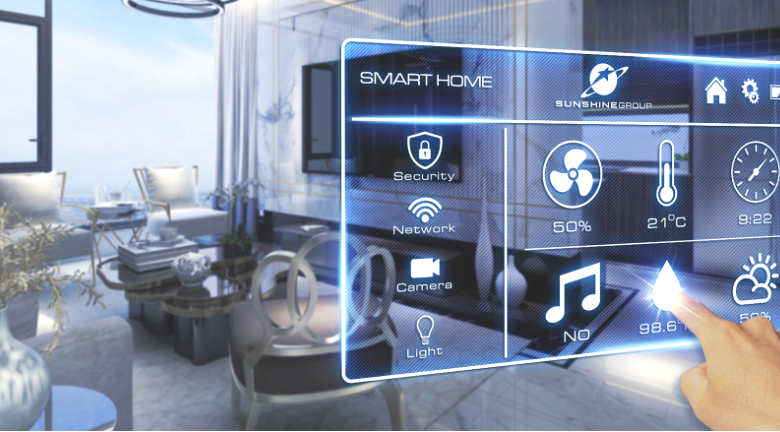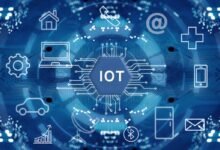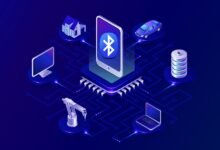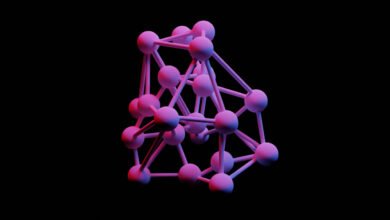Smart Living with IoT: Revolutionizing Daily Life

In a world constantly evolving with technological advancements, the integration of the Internet of Things (IoT) has become a game-changer. IoT, in simple terms, refers to the interconnection of everyday devices to the internet, enabling them to send and receive data.
Smart Living with IoT
This digital revolution has remarkably transformed daily life, ushering in an era of smart living where our environments, habits, and experiences are redefined.
IoT in Smart Homes
Smart homes are at the forefront of the IoT revolution, offering unparalleled convenience and efficiency. Home automation systems allow users to control various devices remotely, optimizing energy consumption and enhancing security. From smart thermostats to connected surveillance cameras, IoT in smart homes is making our living spaces more intuitive and responsive to our needs.
Read More : Navigating the IoT Landscape: Trends and Innovations 2024
IoT in Healthcare

The healthcare sector has witnessed a significant impact with the incorporation of IoT. Remote patient monitoring, wearable devices, and health tracking apps have empowered individuals to take charge of their well-being. Through real-time data collection and analysis, healthcare professionals can provide more personalized and timely interventions, ultimately improving patient outcomes.
IoT in Transportation
The transportation industry has embraced IoT, leading to the development of connected vehicles and efficient traffic management systems. The prospect of autonomous driving is no longer a distant dream, with IoT playing a pivotal role in creating a safer and more streamlined transportation experience.
Smart Agriculture with IoT
In agriculture, IoT is revolutionizing traditional practices through precision farming, crop monitoring, and the use of IoT-enabled equipment. Farmers can make data-driven decisions, optimize resource utilization, and enhance overall productivity, contributing to sustainable and efficient agricultural practices.
IoT and Sustainable Living
The IoT ecosystem is increasingly contributing to sustainable living by monitoring environmental conditions, managing waste, and supporting conservation efforts. Through smart sensors and devices, individuals and communities can actively participate in minimizing their environmental footprint.
Challenges and Concerns
While the benefits of IoT are undeniable, challenges such as security risks, privacy concerns, and the need for standardized protocols must be addressed. Safeguarding personal data and ensuring a secure IoT infrastructure are crucial aspects that demand attention as smart living becomes more widespread.
Future Trends in IoT
Looking ahead, the integration of 5G technology, the advent of edge computing, and the collaboration between IoT and artificial intelligence are anticipated trends. These developments promise faster connectivity, more efficient data processing, and a higher level of intelligence in IoT-enabled devices.
Benefits of Smart Living with IoT
The advantages of embracing smart living with IoT are manifold. Time-saving features, improved efficiency in daily tasks, and enhanced convenience contribute to a lifestyle that is not only modern but also tailored to individual preferences.
IoT Adoption in Developing Countries
The adoption of IoT in developing countries faces challenges, but its positive impacts on communities, ranging from improved healthcare services to enhanced agricultural practices, demonstrate the potential to bridge technological gaps and improve quality of life.
Social Implications of IoT
As IoT reshapes daily life, it brings about changes in social dynamics and raises questions about its impact on jobs and employment. Adapting to these changes requires thoughtful consideration and strategic planning to ensure a smooth transition.
The Role of Big Data in Smart Living
Big data analytics play a crucial role in optimizing smart living. The vast amounts of data generated by IoT devices enable predictive analysis, helping individuals and businesses make informed decisions and tailor their experiences to specific needs.
Consumer Awareness and Education
As IoT becomes more prevalent, consumer awareness and education become paramount. Understanding the implications of IoT, its benefits, and safety precautions are essential for individuals to fully embrace and integrate these technologies into their lives.
IoT and Personalization
One of the remarkable aspects of smart living with IoT is the level of personalization it offers. From smart home devices adjusting to individual preferences to customized solutions for users, IoT creates an environment that adapts to the unique needs and preferences of individuals.
Read More : IoT Wonders Unveiled: Embracing the Future Today
Conclusion
In conclusion, smart living with IoT is not just a technological trend but a transformative force reshaping the way we live, work, and interact with our surroundings. Embracing this digital revolution opens doors to unparalleled convenience, efficiency, and personalization. As we navigate the complexities and challenges, the benefits of a connected, IoT-enabled lifestyle are evident, promising a future where daily life is not just lived but optimized.
FAQs
- Is IoT technology secure for daily use?
- Yes, with proper security measures, IoT technology can be used safely in daily life.
- How does IoT contribute to sustainable living?
- IoT monitors environmental conditions, manages waste, and supports conservation efforts, contributing to sustainable living.
- What are the challenges of adopting IoT in developing countries?
- Challenges include infrastructural limitations, affordability, and the need for extensive education and awareness.
- Can IoT be personalized to individual preferences?
- Yes, IoT enables personalization through smart devices that adapt to individual preferences and needs.
- What role does big data play in optimizing smart living?
- Big data analytics in IoT enables predictive analysis, aiding in informed decision-making and personalized experiences.







